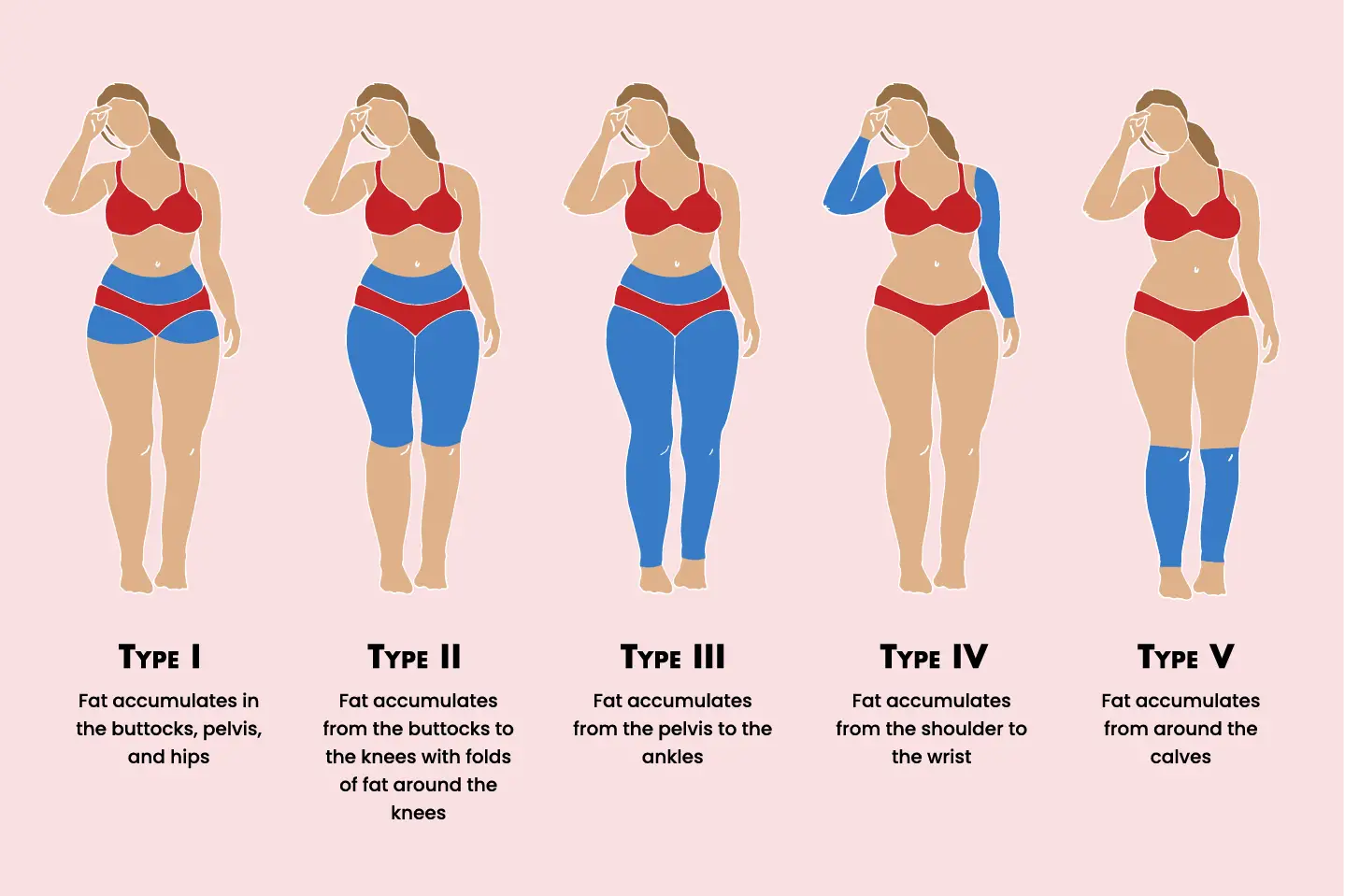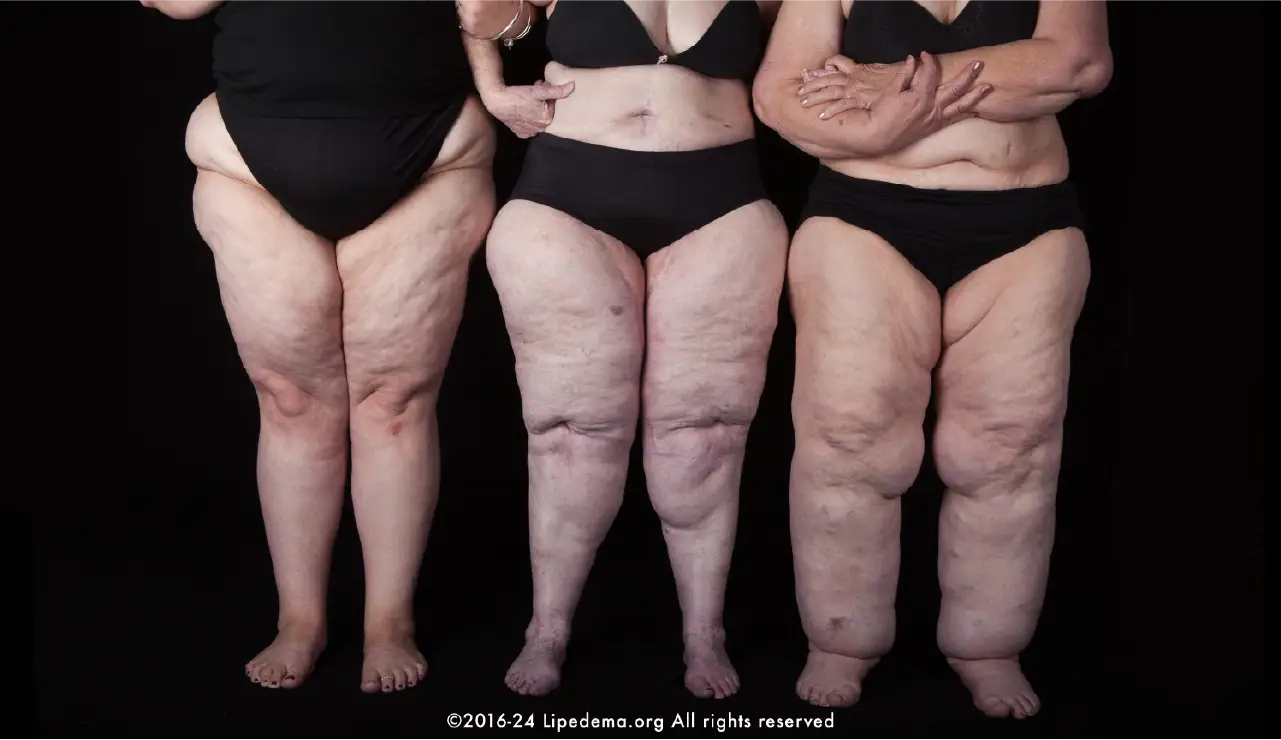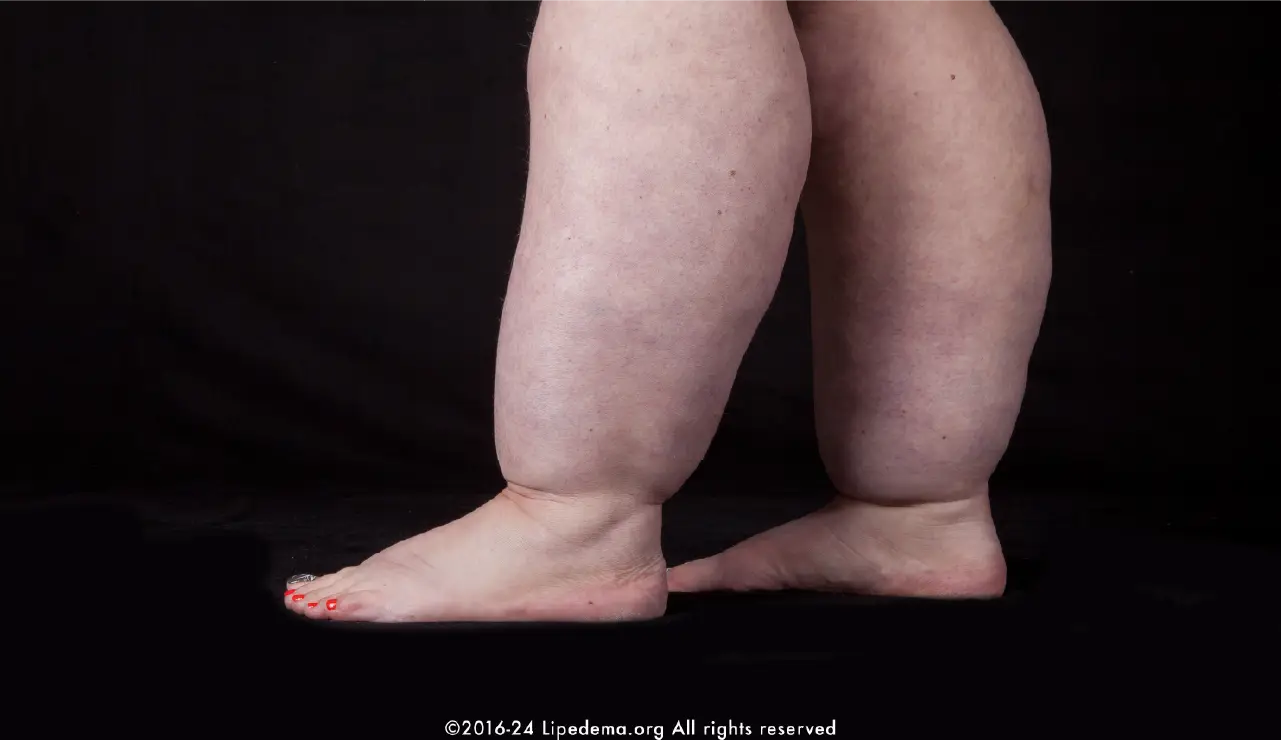Understanding The Complex Condition of Lipedema
Dr. Edouard Coeugniet
Lipedema is a chronic, often misdiagnosed condition characterized by an abnormal, painful fat accumulation, usually in the legs and arms. It's not just about weight, and this fat resists diet and exercise, causing significant distress.
Meet Dr. Édouard Coeugniet: Your Expert in Advanced Plastic Surgery & Lipedema Care. When it comes to your health and well-being, expertise matters. We're incredibly proud to introduce Dr. Édouard Coeugniet, a Triple Board-Certified Plastic Surgeon with over 25 years of experience dedicated to delivering exceptional results.
But Dr. Coeugniet's commitment to cutting-edge care doesn't stop there. With his German background and training, he brings the most advanced techniques and knowledge specifically to Lipedema treatment. His direct connection to the leading-edge protocols of the German society of Lipedema ensures his patients benefit from truly innovative care for this complex condition.

Photo credit © Lipedema Foundation
" I see many patients seeking answers. Understanding the defective mechanisms of the disease is key to effective management. "
Key Factors Behind Lipedema:
- Genetic Predisposition: There's a strong hereditary link. It frequently runs in families, with estimates indicating that between 20% to 80% of individuals with Lipedema have first-degree relatives (mothers, sisters, grandmothers) who are also affected. This familial pattern strongly suggests that certain genes increase susceptibility to the condition. While a single "Lipedema gene" has not been definitively identified, ongoing research is exploring multiple genetic factors that may influence fat storage, blood vessel function, lymphatic drainage, and even connective tissue properties.
- Hormonal Influences: Lipedema often starts or worsens during significant hormonal shifts like puberty, pregnancy, and menopause. This suggests a strong connection to female hormones.
- Lymphatic System Impact: While not a primary lymphatic disorder, the excess fat can secondarily impede lymphatic drainage, leading to additional swelling and pain.
- Fat Tissue Dysfunction: Recent research indicates Lipedema might be a disorder of the fat tissue itself, involving chronic inflammation and dysfunctional fat cells that grow abnormally.
Other Contributing Factors
Beyond genetics and hormones, other factors are increasingly being recognized as potential contributors or aggravators of Lipedema. These include:
- Chronic Inflammation: Studies increasingly reveal underlying chronic inflammation within Lipedema tissue, with altered immune responses and the presence of specific types of macrophages (immune cells) that may affect fat cell growth and fibrosis
- Vascular and Lymphatic Dysfunction: Many individuals with Lipedema show signs of impaired lymphatic function, leading to fluid buildup (edema) that can exacerbate swelling and discomfort. Weak or leaky blood vessels (venous insufficiency) are also frequently observed, contributing to increased fluid and tissue changes. This impaired microcirculation and lymphatic drainage can create a vicious cycle, further promoting fat accumulation and inflammation.
- Connective Tissue Abnormalities: Emerging evidence suggests alterations in the extracellular matrix surrounding fat cells and potentially weakened or abnormal connective tissue, which might contribute to the characteristic lumpy, nodular feel of Lipedema fat and its symmetrical distribution.
- Metabolic Disruptions: While Lipedema fat is distinct from typical obesity and often doesn't lead to metabolic issues like type 2 diabetes in its early stages, some research is exploring potential metabolic differences in Lipedema tissue.
It's important to remember that these factors likely interact in complex ways, and the exact combination that leads to Lipedema can vary from person to person. Ongoing research continues to shed light on the intricate pathophysiology of this challenging condition.

Photo credit © Lipedema Foundation
What are the differences between Lipedema, Obesity, and Lympedema?
Lipedema usually affect both sides at the same time. It also affects the legs, thighs, and arms, unlike obesity, which affects the whole body.
However, most often this condition is associated to obesity, which on the other side plays an aggravating role on the lipedema.
Lympedema unlike lipedema, starts in the lower leg and may be related to surgery and may only affect one side of the body.
How is lipedema diagnosed?
The diagnosis is essentially CLINICAL.
To determine whether you have lipedema, Dr. Edouard Coeugniet will conduct a very thorough physical examination. After the examination, Dr. Edouard Coeugniet will confirm or rule out the diagnosis.
The most important signs include:
- Increased fatty tissue on the legs and sometimes also on the arms
- Symmetrical distribution, often without involvement of the feet or hands
- Pain when touched
- Feeling of heaviness and tension
- Tendency to bruises
- Almost only women are affected
- Swelling that increases in summer
- Fat deposits can hardly be reduced through diets
Treatments for Lipedema in Montreal, Quebec — Canada
Liposuction has emerged as a significant and often highly effective treatment option for Lipedema, particularly for managing the abnormal fat accumulation that is resistant to diet and exercise. While conservative therapies like compression garments and manual lymphatic drainage are crucial for managing symptoms and preventing progression, liposuction is currently the only available technique that directly removes the diseased adipose tissue and can provide long-lasting benefits in terms of pain reduction, improved mobility, and better body contour.
It is however of crucial importance, to use the right technique and device to very gently remove the fat lobules without damaging the lymphatic vessels. Dr Coeugniet is familiar with all these procedures and possesses the right knowledge directly from Germany!
Lipedema is a complex medical condition distinct from obesity. If you suspect you have Lipedema due to disproportionate body shape, painful limbs, or easy bruising, please seek a consultation with a knowledgeable professional. Early diagnosis is crucial for managing symptoms and improving quality of life.
Ready to Take the Next Step?
We invite you to schedule a consultation with Dr. Edouard Coeugniet. Contact our
office today
☎️ (514) 736-7792 to begin your journey towards a more confident you.
Disclaimer: This blog post is intended for informational purposes only and does not constitute medical advice. Surgical results vary between individuals. A personal consultation with a qualified plastic surgeon is necessary to determine suitability for any procedure.




